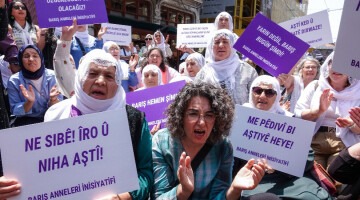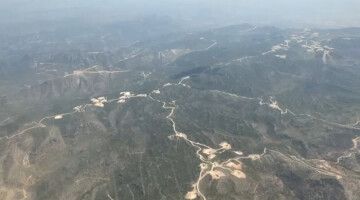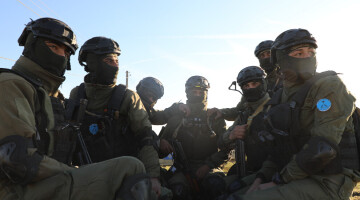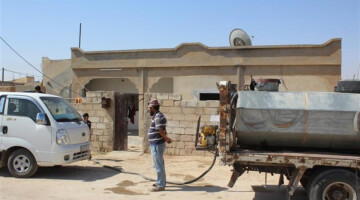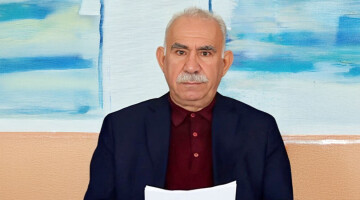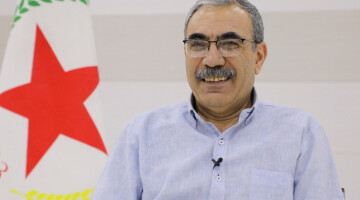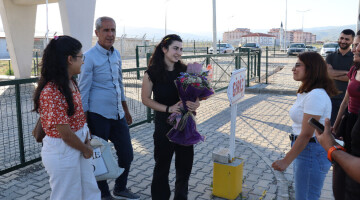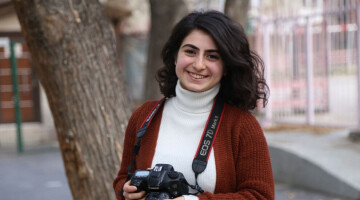Reporters Without Borders (RSF) urged Turkey’s national assembly to repeal all the decree-laws that are incompatible with its constitution and its international obligations after examining the persecution of Turkey’s journalists and media under the state of emergency proclaimed six months ago.
RSF recalled that in the increasingly arbitrary clampdown on media freedom during the past six months, the authorities have jailed around 100 journalists without trial, closed 149 media outlets, rescinded 775 press cards, withdrawn journalists’ passports and seized their assets without justification.
In a letter sent to the national assembly’s commission of enquiry into human rights, RSF asked Turkey’s parliamentarians to repeal the decree-laws issued under the state of emergency, stressing that the decrees are unconstitutional and incompatible with Turkey’s international obligations.
“After six months of this state of emergency, journalism is dying in Turkey,” RSF secretary-general Christophe Deloire said. “Pluralism is in the process of being destroyed and the remaining media outlets live under a permanent threat, in a climate of fear and intimidation fuelled by certain leaders’ comments. It is time to end these arbitrary practices and return to the constitution’s guarantees of media freedom.”
JOURNALISTS IMPRISONED WITHOUT TRIAL
RSF pointed out that the vast majority of the journalists imprisoned immediately after the failed coup attempt of 15 July are still awaiting the start of their trials. The requests for their release submitted by their lawyers have for the most part been rejected by magistrates subservient to the regime, without any plausible legal grounds being offered. RSF added that in a very few cases, imprisoned journalists have been released provisionally but continue to await trial.
MANY IMPRISONED JOURNALISTS IN STRICT ISOLATION
RSF noted that: "In accordance with the decree-laws adopted under the state of emergency, police are present when detainees talk to their lawyers and video cameras record their conversations. Journalists arrested for alleged links with the Gülen movement are subjected to especially strict isolation rules. They are held in Section 9 of Silivri prison, 70 km outside Istanbul, where they are denied access to mail and media, and their visitation rights are extremely limited.
According to the prosecutor’s office, Cumhuriyet’s coverage of sensitive stories such as Turkey's arms deliveries to Jihadi groups in Syria, human rights abuses during military operations against Turkey’s Kurdish rebels and the alleged torture of suspected participants in the July coup attempt is all evidence of the newspaper’s “complicity” with the Gülen movement."
PLURALISM DYING
RSF emphasised that a total of 149 media outlets considered sympathetic to the Gülen or Kurdish movements have been dissolved by decree or administrative decision since 20 July. The first decree dissolving 102 media outlets at the end of July has been followed by similar orders. Two dozen TV and radio stations were closed at the start of October and fifteen Kurdish media were closed at the end of October. According to RSF, the range of pluralism in Turkey has been reduced to pro-government media.
RSF reminded that most of the media closed by decree, including opposition TV channels Hayatın Sesi and İMC TV, are still awaiting a response from the administrative courts to which they appealed. They also plan to refer the closures to the European Court of Human Rights because the Constitutional Court announced in October that it was not competent to hear cases linked to decrees issued under the state of emergency.
TIGHTER GRIP ON BROADCASTING
The decree-laws have strengthened the powers of the High Council for Broadcasting (RTÜK), which can now suspend any radio or TV station for a day if it is deemed to have contravened the media law. For subsequent breaches, the suspension can be for five days, then 15 days, and then its licence can be withdrawn for good.
A provision recently added to the RTÜK’s statutes prohibits “media coverage of terrorist acts, their perpetrators and their victims when it contributes to terrorism’s objectives.”
The RTÜK can also now deny a licence to any media outlet that allegedly poses a “threat to national security, public order or the general interest.” And it can deny a licence if the police or intelligence services identify any “links” between the outlet’s personnel and a “terrorist organization.”
UNPRECEDENTED CONTROL OF THE INTERNET
Twitter, YouTube and Facebook are now routinely blocked after every bombing or other emergency situation. But the authorities crossed a new threshold when they temporarily rendered the messaging services WhatsApp, Skype and Telegram inaccessible at the start of November.
Internet service providers were also ordered to restrict access to a dozen VPNs and the Tor network, which allow users to circumvent censorship and encrypt all traffic. At the same time, Internet access was disconnected entirely for several days in Turkey’s mainly Kurdish southeastern regions.
In response to the growing abuses, RSF reiterated the calls made in its report entitled “State of emergency opens way to arbitrary rule", starting with the repeal of the unconstitutional decree-laws and the immediate release of journalists who have been imprisoned in connection with their work. RSF also called of an end to the isolation of journalists held in Section 9 of Silivri prison.
RSF noted that Turkey is ranked 151st out of 180 countries in RSF’s 2016 World Press Freedom Index.

